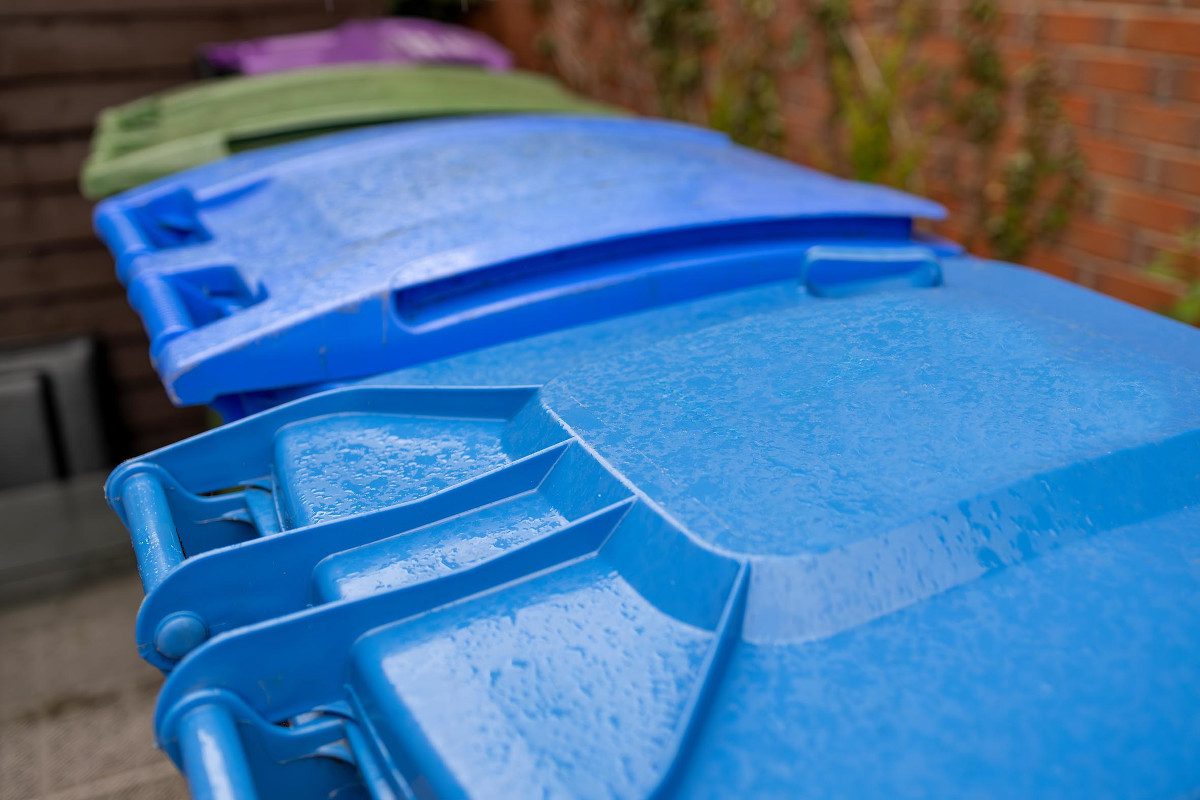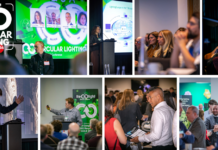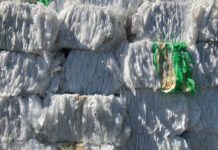
Joseph Doherty, CEO of waste management firm Re-Gen, writes
The Northern Ireland Local Authority Collected Municipal Waste Management Statistics annual report for 2023/2024 has provided clear evidence that the commingled, three-bin waste collection system delivers higher household dry recycling rates compared to a multi-stream, kerbside sort system, Re-Gen has stated.
The report revealed that local council areas utilising a commingled blue bin system for dry recyclables, such as paper, cardboard, cans, and glass, achieved the highest recycling rates. In stark contrast, council areas relying on kerbside sort systems, where householders sort recyclables into multiple boxes, recorded the lowest recycling rates.
Commingled systems dominate recycling rates
The statistics highlighted Derry City & Strabane as the top performer with a dry recycling rate of 29.2%, using a commingled system inclusive of glass. Conversely, Lisburn & Castlereagh, which primarily uses a kerbside sort system with limited commingled collections, recorded the lowest dry recycling rate at just 17.5%. In fact, four of the top five use the fully commingled system, and three of the bottom four use the kerbside multi stream system. This trend is consistent across several years and therefore demonstrates the effectiveness of commingled collection systems in achieving higher recycling rates. (Northern Ireland Local Authority Collected Municipal Waste Management Statistics 2023/2024)
Joseph Doherty, Chief Executive of Re-Gen, emphasised: “Waste management statistics consistently prove that commingled systems, particularly those inclusive of glass, deliver the highest recycling rates. The data shows what we’ve long advocated: commingled systems are superior for carbon efficiency, cost-effectiveness, and householder convenience.”
Convenience drives participation
Doherty pointed out the fundamental flaw in the kerbside sort system: “Requiring householders to sort recyclables into multiple boxes is both inconvenient and inefficient. It essentially shifts the responsibility of sorting waste onto individuals, which discourages participation. At Re-Gen, we believe this process is better handled by advanced facilities equipped with state-of-the-art technology.”
Investing in advanced recycling technology
Re-Gen has invested heavily in its materials recovery facility, leveraging AI and robotics to optimise sorting processes and reduce contamination levels. Over the past two decades, the company has refined its operations to produce high-quality recyclates, such as paper, cardboard, metals and glass which support the circular economy in Northern Ireland. Re-Gen recently won Best Recycling Company and Best Paper Recycling Company in the 2024 Recycling Awards. The award recognised Re-Gen’s capability for glass and paper to be collected in the same bin and still be recycled back to bottle and paper again thus fulfilling the needs of the circular economy.
Cost and carbon efficiency
Commingled waste collection is also more economical. Estimates suggest that transitioning all council areas in Northern Ireland to kerbside sort systems would cost £1.2 billion over seven years. (Include source Grant Thornton June 2024)
Additionally, a study by eminent carbon consultants Eunomia, published in June 2024, demonstrated that Re-Gen’s commingled system significantly outperforms the kerbside sort system in terms of carbon impact per tonne in Northern Ireland. Eunomia’s review of Re-Gen’s commingled sorting process confirmed its superior environmental performance.
Householders prefer the 3-bin system
Extensive independent research conducted by LucidTalk in June 2024 concluded that Northern Irish householders prefer the blue bin system. Over 79% of those currently using the blue bin don’t want to switch to the kerbside box system.
Northern Ireland: Progress in Recycling and Waste Management
The 2023/2024 report also highlighted broader progress in waste management across Northern Ireland
- Overall recycling rate: Increased to 50.5%, up by 0.9% from the previous year (Northern Ireland Local Authority Collected Municipal Waste Management Statistics 2023/2024).
- Landfill rate: Dropped from 23.1% in 2022/2023 to 18.4%, thanks to advancements in recovery and recycling processes.
- Energy recovery: Rose from 25.4% to 29.7%, with Re-Gen exporting residual waste to Scandinavian power plants that utilise both electricity and heat, ensuring maximum efficiency (Northern Ireland Local Authority Collected Municipal Waste Management Statistics 2023/2024).
A clear path forward
Whilst the latest statistics show progress overall, there is still much work to be done if we are to hit the 70% overall recycling targets by 2030. To achieve this will require further investments in AI and advanced sorting technology, alongside government programmes to promote more recycling by householders. However, the data is clear, the more simple the system, the more people will recycle. It really is that simple!
* All statistics cited are sourced from the Northern Ireland Local Authority Collected Municipal Waste Management Statistics 2023/2024 annual report and related references to Eunomia Research and Consulting.







